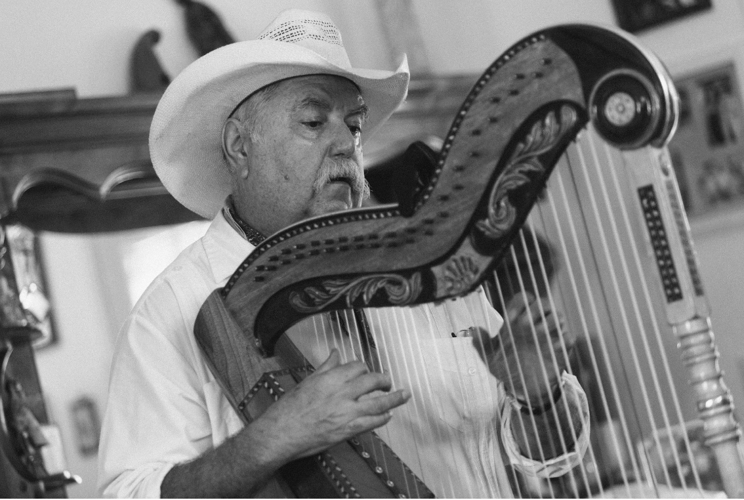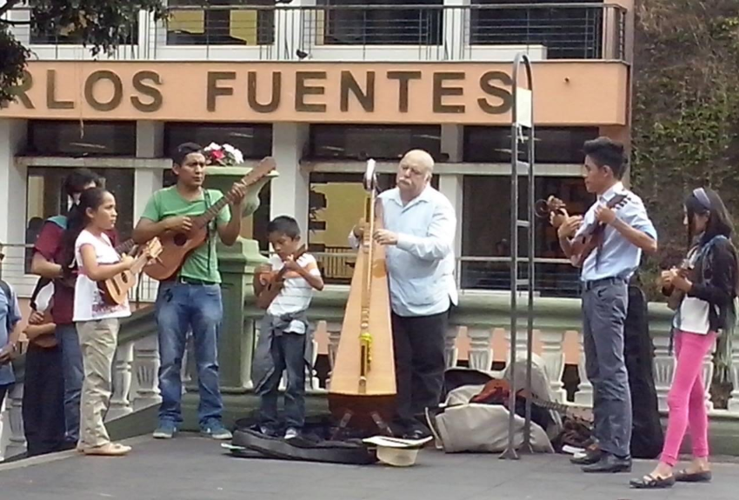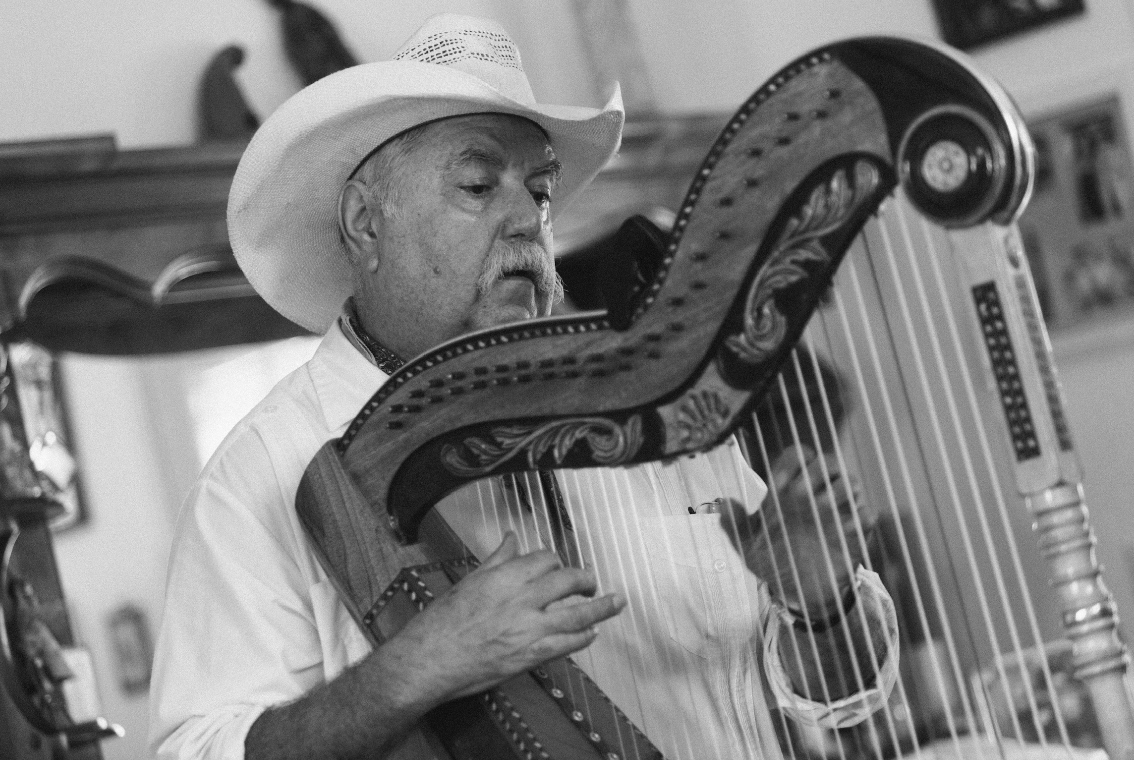Francisco González, a one-time Tucson resident who co-founded the acclaimed band, Los Lobos, and who would go on to share his deep appreciation for Mexican folk music and instruments among musicians and aficionados here and around the globe, died on March 29. He was 68.
Peter Dalton Ronstadt, a well-known Tucson musician, was one of those artists who soaked up González’s musical knowledge. Ronstadt along with his late father, Michael J. Ronstadt, collaborated with González on recordings and on the stage. It was about two months ago that Peter Ronstadt talked to González on a visit to Tucson. They talked about their favorite subjects: music, strings and instruments, and the history and culture of Mexican folk music.
Although separated by several generations, the two were wedded to exploring and maintaining musical traditions.
“I found Francisco to be a consummate teacher. Every minute I spent with him, he kept pushing those traditions to the future,” said Ronstadt who leads his band, The Company.
González was a Los Angeles native who, along with his neighborhood friend, Cesar Rosas, founded Los Lobos del Este de Los Angeles.
“We got together to learn some songs, to play for our mothers, to show them we appreciated the music of our culture,” said González in a 1975 video with his East LA buddies. Known as Frank at the time, González was beginning to master the Mexican harp, or arpa, and son jarocho, the musical style of Veracruz on Mexico’s eastern gulf coast. (Think “La Bamba,” a classic son jarocho tune turned mega hit first by Chicano rock ‘n’ roll legend Richie Valens in 1958 and in 1987 by Los Lobos.)
González’s influence on the band was significant but he left the band in its infancy. Rechristened as Los Lobos, the original quartet (Rosas, Louie Pérez, David Hidalgo and Conrad Lozano, and later Steve Berlin) became one of the most acclaimed bands in the country. Its most recent recording, “Native Sons,” earned Los Lobos a Grammy Award for Best Americana Album, the band’s fourth.
“Francisco was a brilliant musician, and after leaving the group in 1976 to follow a different musical path, he went on to master the Veracruz harp, then became the musical director of El Teatro Campesino theatre group — always shining across a lifetime of accomplishments. It is with gratitude, respect, and love that we thank Francisco for inspiring us, and instilling in us his great pride for the culture and the music of our heritage,” Los Lobos wrote on Instagram.

Francisco González playing with students in Xalapa, Veracruz, in front of the Biblioteca Carlos Fuentes.
In 1977, the band recorded its landmark debut album, “Los Lobos del Este de Los Angeles (Just another band from East L.A.),” its homage to Mexican folkloric music and son jarocho.
González joined El Teatro Campesino as its musical director — the seminal theater troupe associated with César Chávez and the United Farmworkers labor movement. He also founded the Guadalupe Customs String stop where he made strings for the various Mexican instruments for folkloric and mariachi musicians. The shop became a go-to-place for musicians who turned their attention to grass-roots Chicano and Mexican music.
“He was our own Chicano conservatory,” said his son, also named Francisco, in an interview with Gustavo Arellano of the Los Angeles Times. “He gave us tools to resist discrimination and injustice and to stand and fight for ourselves, but also to love.”
González came to Tucson in the early 2000s when his wife, Yolanda Broyles-González, a Yaqui-Chicana native of Southern Arizona, was on the faculty of Mexican-American Studies at the University of Arizona.
“Francisco was a very spiritual man. His Tucson music connection included playing arpa in the ramada for the Yoeme (Yaqui) deer dance during Cuaresma (Lent) at the Capilla de San Martin de Porres on 39th Street,” said Broyles-González, director of the Department of Social Transformation Studies at Kansas State University.
“He always used to say that he was just a ‘jardinero’ and that his work was to plant the seeds of our music,” she added. They co-authored a book on son jarocho.
González’s collaboration with Michael J. Ronstadt, who passed away in 2016, took them to places around the country and the world. In a 2013 interview in Fairbanks, Alaska, they talked about their musical connections and when González’s arpa was damaged on a trip to the United Kingdom. The duo had a performance scheduled in Wales and González was able to secure a harp for a performance in a pub.
Tom Walbank was another Tucson musician who collaborated with González. The two met at the old 17th Street Market, which doubled as a record store and recording studio. The two hit it off, sharing their love for roots-fueled music, said Walbank, an English-born blues harmonica player.
That lead to Walbank playing harmonica on a track on “El Regalo/The Gift,” a 2009 recording that González made at the 17th Street Studio, produced by bassist Harvey Brooks (Bob Dylan, Richie Havens, Miles Davis, Cass Elliott, The Doors, Clarence Clemmons).






